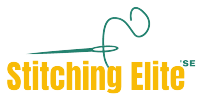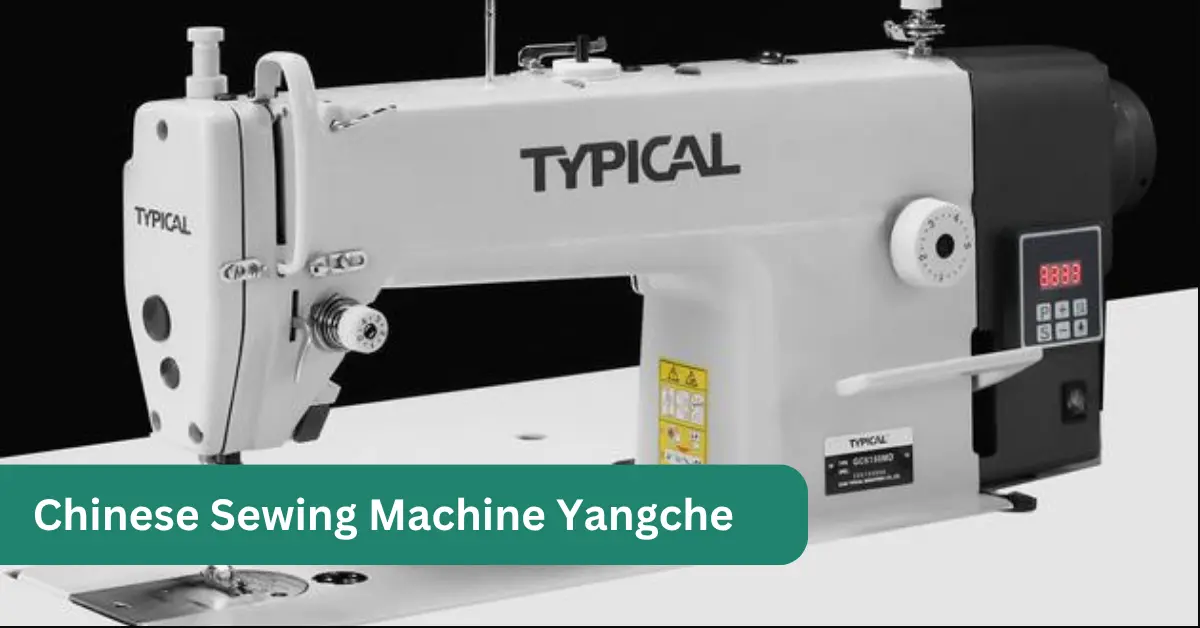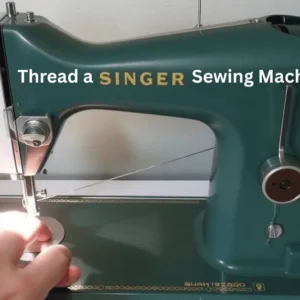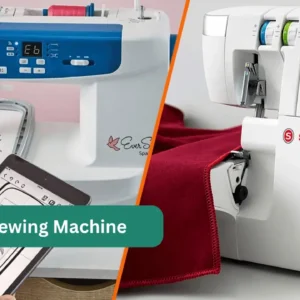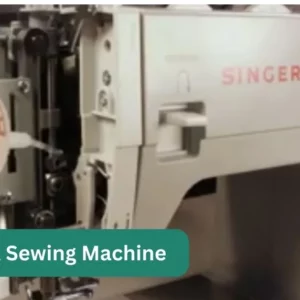Have you ever wondered about those sturdy, often budget-friendly sewing machines that seem built to tackle anything? Chances are, you’ve encountered or heard about a Chinese sewing machine Yangche. While not a brand name itself, “Yangche” is a common term, especially in certain sewing circles, referring to a broad category of sewing machines primarily manufactured in China. These machines are known for their strong build and ability to handle tough fabrics, making them popular among hobbyists and small businesses alike.
This guide will take you on a journey through the world of Yangche sewing machines. We’ll explore what makes them unique, who they’re best for, and how to choose and care for one. Whether you’re a beginner looking for a durable workhorse or a seasoned sewer curious about these powerful machines, you’re in the right place!
Table of Contents
- 1 Key Takeaways
- 2 What exactly is a Chinese sewing machine Yangche?
- 3 A Glimpse into Their History and Evolution
- 4 Why Choose a Yangche Sewing Machine? The Pros! 👍
- 5 Things to Consider: The Challenges & Cons 🤔
- 6 Types of Yangche Sewing Machines You Might Encounter
- 7 Key Features to Look For When Buying a Yangche Machine
- 8 Setting Up Your Yangche Machine: First Steps! 🚀
- 9 Common Projects for Yangche Machines
- 10 Maintenance Tips for Your Yangche Machine 🧼
- 11 Is a Yangche Machine Right for You? 🤔
- 12 Interactive Yangche Machine Selector Tool
- 13 Conclusion: Your Powerful Sewing Partner
Key Takeaways
- “Yangche” is a general term for many robust sewing machines made in China, known for their strength and affordability.
- These machines are excellent for heavy-duty projects like denim, leather, and upholstery, often outperforming typical home sewing machines.
- You’ll find both domestic and industrial styles, with industrial Yangche machines being very powerful and built for continuous work.
- While they offer great value, it’s important to research brands and seller support, as quality can vary.
- Proper maintenance and understanding their features (like motor type) are key to getting the most out of your Yangche machine.
What exactly is a Chinese sewing machine Yangche?
The term “Yangche” (洋车) literally translates from Chinese as “foreign vehicle” or “ocean car.” In the context of sewing, it’s often used informally to describe sewing machines, particularly those that are robust, often industrial-grade, and manufactured in China. It’s not a specific brand like Singer or Juki, but rather a catch-all phrase that has become popular due to the widespread availability and use of Chinese-made sewing equipment.
Think of it like how “Kleenex” became a general term for facial tissues, even though it’s just one brand. Similarly, “Yangche” has become a casual way to refer to many sewing machines coming out of China, especially those that offer strong performance at a competitive price.
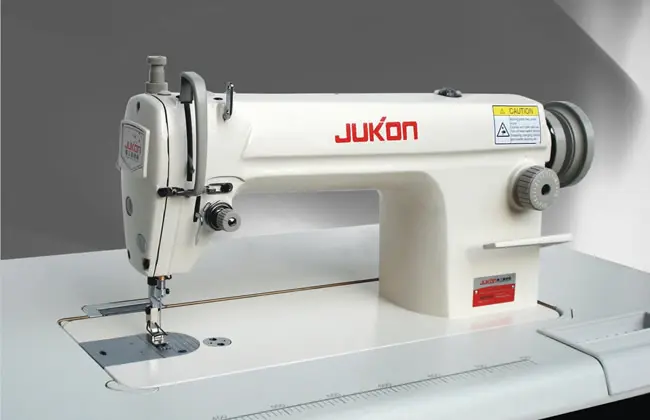
These machines are designed to be workhorses. Unlike many home sewing machines that might struggle with multiple layers of denim or thick upholstery fabric, Yangche machines are often built to power through them with ease. This makes them a fantastic option for crafters, small business owners, and anyone who regularly works with challenging materials.
A Glimpse into Their History and Evolution
The history of sewing machines in China is a fascinating one, deeply tied to the country’s industrial development. While Western brands like Singer introduced sewing machines to China in the late 19th and early 20th centuries, China began to develop its own robust manufacturing capabilities in the mid-20th century.
Initially, Chinese factories focused on producing machines that were durable, reliable, and affordable for both domestic use and the burgeoning textile industry. Many early designs were based on successful international models, adapted and refined for mass production. This focus on sturdy construction and cost-effectiveness laid the groundwork for what we now commonly refer to as “Yangche” machines.
Over the decades, Chinese manufacturers have expanded their range, from simple mechanical machines to advanced electronic and computerized models. They’ve become major global suppliers of sewing equipment, catering to diverse needs from home sewers to massive garment factories. The “Yangche” machines you see today are a testament to this long history of industrial growth and innovation.
Why Choose a Yangche Sewing Machine? The Pros! 👍
So, what makes these Chinese-made machines so appealing to many sewers? There are several compelling reasons why a Yangche might be the perfect fit for your sewing space.
1. Affordability that Doesn’t Skimp on Power 💰
One of the biggest draws of Yangche machines is their price point. You can often get a powerful, heavy-duty machine for significantly less than what you’d pay for a comparable model from a well-known Western or Japanese brand. This makes them an excellent choice for:
- Beginners who want a robust machine without a huge upfront investment.
- Hobbyists looking to upgrade to a more capable machine for specific projects.
- Small businesses that need multiple reliable machines on a budget.
2. Built Like a Tank: Durability & Reliability 💪
Many Yangche machines, especially the industrial types, are designed for continuous, demanding work. This means they are often built with:
- Metal components: Less plastic means more durability and stability, especially at high speeds.
- Strong motors: Capable of pushing through thick layers of fabric without bogging down.
- Simple mechanics: Often easier to maintain and troubleshoot.
This robust construction translates into a machine that can handle years of heavy use.
3. The Heavy-Duty Hero 👖🧵👜
This is where Yangche machines truly shine. If your sewing projects involve:
- Denim (hemming jeans, making bags)
- Leather (small leather goods, upholstery)
- Canvas (tents, outdoor gear, heavy bags)
- Vinyl
- Multiple layers of thick fabric
…then a Yangche machine is often your best friend. They are specifically engineered to power through materials that would jam or break needles on lighter-duty home machines.
“For tackling tough fabrics like denim and leather, a Yangche machine can be a game-changer. They’re built for power!”
4. Availability of Parts & Expertise 🛠️
Because these machines are so widely manufactured and used, replacement parts are often readily available and relatively inexpensive. Many local sewing machine repair shops are also familiar with their common mechanisms, making maintenance and repairs more accessible.
5. Specialized Models for Every Need 🪡
Beyond general-purpose machines, the “Yangche” category includes a vast array of specialized machines:
- Lockstitch machines: For standard straight stitching.
- Overlock (Serger) machines: For finishing seams. Learn more about the differences between a serger and a sewing machine.
- Walking foot machines: Essential for gripping multiple layers of slippery or thick fabric evenly.
- Cylinder arm machines: For sewing around tight curves like bags or shoes.
This variety means you can find a Yangche machine perfectly suited to your niche sewing needs.
Things to Consider: The Challenges & Cons 🤔
While Yangche machines offer fantastic value and power, it’s also important to be aware of potential downsides.
1. Brand Recognition & Quality Variation 🏷️
Since “Yangche” isn’t a single brand, the quality can vary significantly between manufacturers. Some Chinese brands are highly reputable (e.g., Jack, Zoje, Typical), producing excellent machines that compete globally. Others might be less consistent.
- Research is key: Always look for reviews and recommendations for specific brands or models within the “Yangche” category.
- Seller reputation: Buying from a reputable dealer who offers support and warranties is crucial.
2. Customer Support & Manuals 📞📖
Customer service and the clarity of instruction manuals can sometimes be less robust than with established Western brands.
- Manuals might be poorly translated or less detailed.
- Direct manufacturer support might be harder to access, especially if you’re buying through a third-party distributor.
- However, many online communities and forums are great resources for troubleshooting and advice.
3. Learning Curve for Industrial Models 📈
If you’re upgrading from a domestic machine to an industrial Yangche, there might be a learning curve.
- Speed: Industrial machines are fast. It takes practice to control them.
- Noise: They can be louder than home machines.
- Set-up: Industrial machines often come unassembled and require a bit more effort to set up, including motor installation and oiling.
4. Space & Portability 🏡
Industrial Yangche machines are usually large, heavy, and permanently set into a table. They are not designed for portability. If you have limited space or need to move your machine frequently, this is an important consideration.
Types of Yangche Sewing Machines You Might Encounter
Just like with any category of sewing machines, Yangche machines come in various forms, each suited for different tasks. Understanding the types of sewing machines available will help you choose wisely.
1. Domestic-Style Yangche Machines 🏠
These look and operate much like standard home sewing machines, but they often have a more robust build and a stronger motor. They might be marketed as “heavy-duty” home machines.
- Pros: More compact, often come with more decorative stitches, easier to use for beginners.
- Cons: Still not as powerful as true industrial machines, might lack some specialized features.
- Ideal for: Home sewers who regularly work with denim, canvas, or multiple layers, but don’t need industrial speed or continuous operation.
2. Industrial Yangche Machines 🏭
This is where the “Yangche” reputation for power truly shines. These machines are built for long hours of continuous, high-speed work in factories or professional workshops.
- Pros: Extreme power, high speed, unparalleled durability, specialized functions for specific tasks.
- Cons: Large, heavy, loud, typically only perform one type of stitch (e.g., straight stitch only), higher learning curve.
- Ideal for: Small businesses, professional tailors, upholsterers, or serious hobbyists who need to sew very thick materials or produce items in quantity.
Common Industrial Yangche Types:
- Single-Needle Lockstitch: The most common type, used for basic straight stitching on almost any fabric. Essential for garment construction, bags, and general sewing.
- Overlock (Serger): For neatening raw edges, sewing stretchy fabrics, and creating strong, professional seams.
- Walking Foot: Crucial for sewing multiple layers of slippery or thick materials (like leather, vinyl, upholstery fabric) without them shifting. The “walking” action of the foot helps feed all layers evenly.
- Cylinder Arm: Features a narrow, cylindrical bed, perfect for sewing items with small openings or curves, like sleeves, bags, or shoes.
- Flatbed: The most common industrial setup, with a flat work surface.
Key Features to Look For When Buying a Yangche Machine
When you’re ready to invest in a Yangche machine, knowing what features matter can help you make an informed decision.
1. Motor Type: Clutch vs. Servo ⚡
This is one of the most important distinctions for industrial Yangche machines.
- Clutch Motor:
- How it works: Runs continuously when turned on, even when you’re not sewing. You control the needle speed by pressing the foot pedal, which engages a clutch.
- Pros: Very powerful, reliable.
- Cons: Loud, energy-inefficient (always running), can be harder for beginners to control speed.
- Servo Motor:
- How it works: Only runs when you press the foot pedal. Speed is directly controlled by how much you press the pedal.
- Pros: Quiet, energy-efficient, much easier to control speed (especially slow speeds), often has needle up/down positioning.
- Cons: Slightly less raw power than a clutch motor for extreme heavy-duty work, but still very capable for most tasks.
- Recommendation: For hobbyists and small businesses, a servo motor is almost always preferred due to its quiet operation and precise speed control.
2. Stitch Types & Length 📏
Most industrial Yangche machines are designed for one specific stitch type (e.g., straight stitch for a lockstitch machine, zigzag for a zigzag machine). Domestic-style Yangche machines will offer more variety.
- Adjustable stitch length: Essential for different fabric types and project needs. Make sure it’s easy to adjust.
3. Speed (SPM – Stitches Per Minute) 💨
Industrial machines can reach thousands of SPM. While impressive, remember that for a beginner, control is more important than raw speed. A servo motor helps you manage this.
4. Foot Lift Height ⬆️
Crucial for thick materials. A higher presser foot lift allows you to easily fit bulky projects under the needle. Look for a machine with both knee-lift (for hands-free lifting) and hand-lever options.
5. Workspace Size 📐
Consider the throat space (the area between the needle and the machine body). Larger projects like quilts or curtains need more space.
6. Build Materials 🔩
Prioritize machines with metal internal components for durability.
7. Included Accessories 📦
Check what comes with the machine (extra bobbins, needles, presser feet, oil, tools).
Setting Up Your Yangche Machine: First Steps! 🚀
Getting your new Yangche machine ready to sew can be exciting! Here’s a general guide to help you get started. Keep in mind that specific steps might vary depending on your model and whether it’s a domestic or industrial machine.
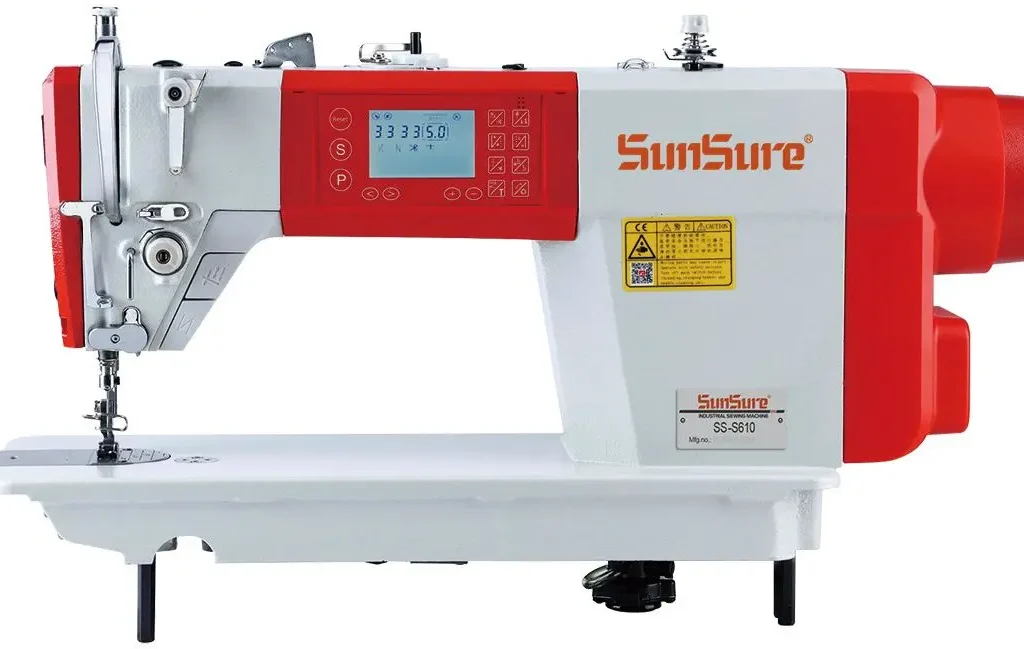
1. Unpacking and Assembly 📦
- Industrial machines: These often come in multiple boxes – the machine head, the table, and the motor. You’ll need to assemble the table, mount the motor, and then place the machine head. Follow the instructions carefully!
- Domestic machines: Usually come pre-assembled and just need to be taken out of the box.
2. Oiling Your Machine 💧
This is critical for industrial machines and highly recommended for any mechanical machine. Yangche machines are built to run for long periods, and proper lubrication prevents wear and tear.
- Locate the oiling points (usually marked with red dots or specific instructions in the manual).
- Use high-quality sewing machine oil (often included).
- For industrial machines, you’ll typically fill an oil pan at the bottom of the machine head. The machine then self-lubricates.
- Important: Always oil before first use and regularly thereafter, based on your usage.
3. Power Connection 🔌
- Ensure your machine’s voltage matches your power supply.
- For industrial machines, ensure the motor is correctly wired (if assembly was required).
4. Threading Your Machine 🧵
The basic principles of threading a sewing machine are similar across most models, but the exact path might differ.
- Top Thread: Follow the numbered guides, tension discs, and take-up lever.
- Bobbin: Wind the bobbin correctly and insert it into the bobbin case (either drop-in or front-loading).
- Practice: Don’t be afraid to practice threading a few times until it feels natural.
5. Needle Selection 🪡
Using the correct needle for your fabric is vital.
- Needle Type: Universal, sharp, ballpoint, denim, leather – choose based on your fabric.
- Needle Size: Thicker fabrics need larger needles (e.g., size 16 or 18 for denim/leather).
- Ensure the needle is inserted correctly (flat side facing the back on most machines).
6. Test Sew! ✨
Always do a test sew on a scrap piece of your project fabric.
- Check stitch quality on both sides.
- Adjust the tension if stitches are looping or uneven.
- Practice speed control, especially with an industrial servo motor.
Common Projects for Yangche Machines
Given their strength and versatility, the Chinese sewing machine Yangche, is perfect for a wide range of projects that might challenge lesser machines.
- Heavy Apparel: Sewing jeans, leather jackets, workwear, and thick coats.
- Bags & Accessories: Creating sturdy tote bags, backpacks, luggage, and leather handbags.
- Home Decor: Upholstering furniture, making heavy curtains, cushions, and slipcovers.
- Outdoor Gear: Repairing tents, awnings, tarps, and boat covers.
- Crafts: Working with multiple layers of felt, heavy canvas for art projects, or even creating a cozy reading pillow with a durable fabric.
- Quilting: Piecing together thick quilt sandwiches, especially if you have a walking foot attachment.
Maintenance Tips for Your Yangche Machine 🧼
Proper care will extend the life of your Yangche machine and keep it running smoothly.
- Clean Regularly: Lint and dust are the enemies of sewing machines!
- Use a small brush and a lint picker to remove fuzz from the bobbin area, feed dogs, and under the needle plate.
- Unplug the machine before cleaning.
- Frequency: After every few hours of sewing or after each major project.
- Oil, Oil, Oil! 💧
- Industrial machines: Check the oil level in the pan regularly and top up as needed. Change the oil periodically as recommended by the manufacturer (e.g., every 6-12 months for heavy use).
- Domestic-style Yangche: Refer to your manual for specific oiling points and frequency. Generally, a few drops in key areas every 8-10 hours of sewing is a good practice.
- Always use proper sewing machine oil, not WD-40 or other household oils.
- Change Needles Often: A dull or bent needle can cause skipped stitches, broken threads, and even damage your machine. Change your needle after every 8-10 hours of sewing or at the start of a new project.
- Check Bobbin Tension: If your stitches are uneven, the bobbin tension might need adjustment. Learn about the parts to a sewing machine to understand where to make these adjustments.
- Store Properly: When not in use, cover your machine to protect it from dust and debris.
- Professional Servicing: Even with regular home maintenance, a professional tune-up every 1-2 years can catch issues before they become major problems.
Is a Yangche Machine Right for You? 🤔
To help you decide if a Chinese sewing machine, or “Yangche,” is the right choice for your sewing journey, consider the following:
A Yangche Machine is a Great Fit If You:
- Work with heavy fabrics often: Denim, leather, canvas, upholstery, multiple layers.
- Are on a budget but need a powerful and durable machine.
- Want a dedicated machine for specific heavy-duty tasks.
- Have space for a larger, potentially industrial machine.
- Are comfortable with basic maintenance and troubleshooting.
- Value simple, robust mechanics over fancy electronic features.
You Might Want to Reconsider If You:
- Primarily sew light, delicate fabrics and don’t need heavy-duty power.
- Have very limited space and need a portable machine.
- Prefer a wide variety of decorative stitches (most industrial Yangche machines are straight stitch only).
- Prioritize extensive customer support and detailed, easy-to-read manuals from a globally recognized brand.
- Are a complete beginner who might be overwhelmed by the speed or industrial setup of some models (though domestic-style Yangche machines are still a good option).
Interactive Yangche Machine Selector Tool
Deciding on the right Yangche machine can be tricky. This tool will help you narrow down your options based on your specific sewing needs.
Find Your Perfect Yangche Sewing Machine!
Answer a few quick questions to get a personalized recommendation.
1. What types of fabrics do you usually sew?
2. What kind of projects do you plan to make?
3. How much space do you have for a machine?
4. What is your approximate budget?
Your Yangche Machine Recommendation:
Key Features to Look For:
Conclusion: Your Powerful Sewing Partner
The “Yangche” sewing machine, though a broad term, represents a fantastic opportunity for sewers to acquire powerful, durable, and affordable machines. Whether you’re a hobbyist looking to tackle robust fabrics like denim and leather or a small business aiming for efficient production, there’s likely a Chinese sewing machine Yangche that fits your needs perfectly.
By understanding the different types, key features like motor types, and the importance of regular maintenance, you can confidently choose and care for your Yangche machine. These workhorses are designed to last and perform, empowering you to create incredible projects that stand the test of time. Happy sewing! 🧵✨
